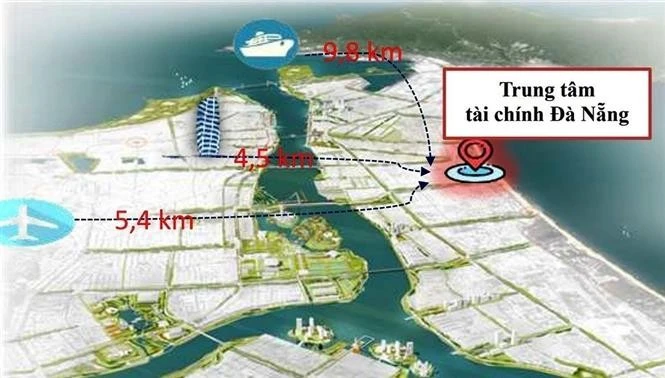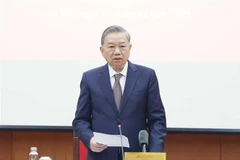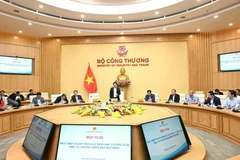Da Nang (VNA) – The central city of Da Nang aims to have at least five FinTech companies with annual revenue exceeding 1 trillion VND (over 39.8 million USD), with a target of 2-3 FinTech companies per 1,000 residents.
Under Decision No. 255 issued by the Da Nang People’s Committee on January 21, 2025, the city has approved a comprehensive plan to evaluate its financial growth from 2011 to 2020 and outline strategies for 2021–2030, with a vision to 2050. The roadmap focuses on modernising the financial market, driving innovation, and leveraging digital economy and high-tech solutions to strengthen the finance sector.
Da Nang aims to establish key drivers for financial system development during 2021–2030, striving to become a regional financial hub before 2050. Key goals include achieving an annual economic growth rate of 8–8.5%, a credit growth of 12–13% per year, and a credit-to-GRDP ratio of 2.2–2.5 times during 2021–2030.
It plans to attract branches or offices of at least 2–3 commercial banks ranked among Asia’s top 100 in total assets, enhancing its presence in financial and banking forums.
In addition, the city targets at least 80% of the adult population using electronic payment services by 2030, with the proportion of cash in total payment methods falling to below 30%. It also hopes to lure 1–2 world-class companies, 3–5 leading FinTech companies in Vietnam, and develop 1–3 FinTech startups with a valuation exceeding 1 million USD.
To support this vision, the city proposes implementing a sandbox mechanism to encourage innovation and attract domestic and international FinTech investments. FinTech innovation hubs will be established at key locations, including the High-Tech Park, the Software Park, and the Centralized IT Park.
Da Nang is also advancing its telecom and digital infrastructure under its 2025 digital transformation plan, with a vision for 2030. The city will encourage tech corporations to develop secure data centres tailored for FinTech businesses. At the same time, it will promote specialised education in financial technology, digital banking, e-commerce, and IT management, partnering with financial institutions to align training programmes with market demands.
In the short term, the city will pilot special policies with the most favourable incentives beyond the national legal framework to establish key components of a regional financial centre. This aims to foster innovation in tech-based finance, promote green finance development, and allow financial institutions to offer services not yet stipulated in the domestic market./.




























